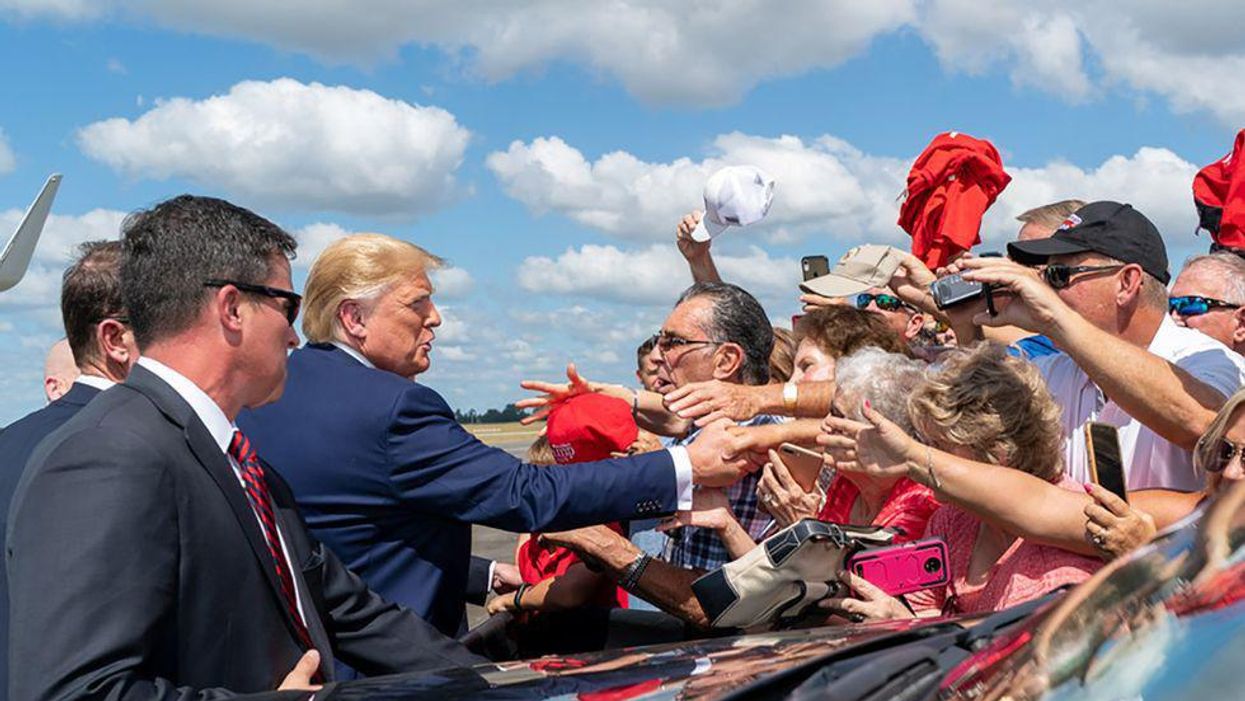As horrific as the January 6 assault on the U.S. Capitol Building was, it could have been much worse. Some of the pro-Trump rioters were chanting, "Hang Mike Pence, hang Mike Pence" and set up a gallows outside the Capitol." Regardless, many MAGA Republicans, from Rep. Andrew Clyde of Georgia to former President Donald Trump himself, have downplayed the violence that occurred that day. But Hussein Ibish, a specialist in Middle Eastern politics, is warning that when people on the far right espouse "violent rhetoric," it's best to believe them.
Ibish is a senior resident scholar at the Arab Gulf States Institute in Washington, D.C. and a native of Beirut, Lebanon. And Ibish, in an article published by The Atlantic this week, emphasizes that "violent rhetoric" coming from MAGA Republicans should be taken every bit as seriously as "violent" or "sadistic" rhetoric from extremists in the Middle East such as ISIS (Islamic State, Iraq and Syria).
"Decades of living in, studying and writing about the Middle East have taught me that whenever a political faction becomes obsessed with violent rhetoric and fantasies, brutal acts aren't far behind," Ibish explains. "And while there's always been a strain of militancy on the American right and left fringes, there is something unmistakably new, and profoundly alarming, about the casual, florid, and sadistic rhetoric that is metastasizing from the Republican fringe into the party's mainstream."
Ibish points to a twisted June 2018 article for The Federalist by Houston-based talk radio host Jesse Kelly as a glaring example of extremist rhetoric coming from the MAGA far right. Kelly's article is full of references to "scalping" his political enemies "Indian style." Although Kelly wrote that he was talking about "not a real scalping, but a metaphorical one," Ibish finds Kelly's "sadistic" rhetoric deeply troubling.
Ibish writes, "In language that the Islamic State would envy, he describes the visceral, almost orgasmic, joy of scalping a dying enemy…. The unmistakable lesson from the modern Middle East is: When people keep saying they're fantasizing about how great it would be and feel to kill you, believe them."
Trump's rhetoric, Kelly recalls, was often violent during his years in the White House. And he notes that former White House Chief Strategist Steve Bannon "suggested that Anthony Fauci should be beheaded, and the Trump-friendly lawyer Joseph diGenova urged that a senior federal cybersecurity official be 'taken out at dawn and shot.' These politicians and pundits are playing the familiar political game of outbidding, always taking rhetoric to the next level in order to gain attention and become the champion of a passionate group. Another lesson from the Middle East is that words always matter."
Ibish views the January 6 insurrection as a major warning sign about the potential for extremist violence in the U.S.
"The past few years have seen numerous mass shootings and terrorist acts committed by radical adherents of this paranoid worldview, but none provided as terrifying a preview of where this all might be going as January 6 did," Ibish argues. "Trump knew exactly what he was suggesting when he told the crowd that day to march to the Capitol and 'fight like hell" to stop the certification of (Joe) Biden's victory. His lawyer Rudy Giuliani specifically called for 'trial by combat,' which is precisely what followed. Mainstream Republican leaders initially condemned the violence, but in the subsequent seven months, most have decided it either wasn't that bad after all or the country simply needs to move on."


